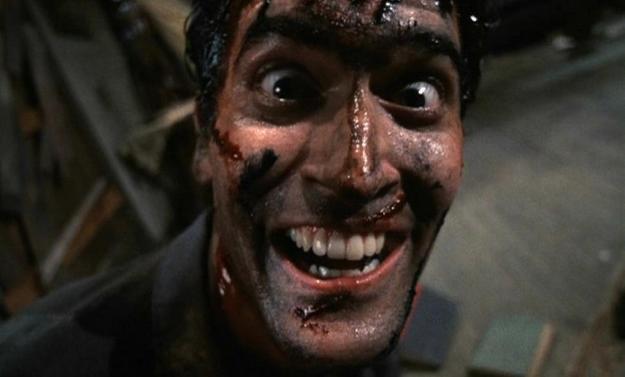
A book published in the year 2000 features a quote from Evil Dead creator Sam Raimi claiming that he would never make a sequel in the horror-comedy franchise. Award Pictures claims this single quotation is evidence that Raimi has abandoned the rights to make any future Evil Dead movies, and has thus decided that it will make its own sequel. Raimi’s Renaissance Pictures — a production company founded by Raimi and Bruce Campbell specifically to make the Evil Dead series — has taken issue with this idea, claiming that a mere quotation, taken out of context, can not be legally binding.
And yet Award is so sure of its claim that the entire mess must now be sorted out in a California court.
As The Hollywood Reporter points out, Raimi changed his mind about his earlier comment last year, and Renaissance Pictures subsequently applied for a trademark on a remake of the original Evil Dead. All seemed to be going well (and fans were giddy at the news), but shortly after the application Award Pictures filed an objection stating that it now owned the rights to the franchise. As proof, Award pointed to a passage in The Evil Dead Companion in which Raimi states, “We’re never going to do a sequel.”
In its objection, Award claims that “This statement is a public declaration by the defendant that the defendant abandoned the alleged ‘mark,’ Evil Dead, decades ago.”
Additionally, Award claims that the dozens of films created since the original Evil Dead using the words “evil” and “dead” in their titles constitute a minor form of infringement on Raimi’s original trademark, and that by not taking these films to court in an effort to defend the trademark, Raimi effectively gave up all rights to the series. In the spirit of fair play, Renaissance Pictures’ lawsuit against Award claims that it had indeed been making use of the trademark by licensing the Evil Dead name and all associated likenesses to video games, toys and comic books. Likewise, it claims that Award’s intended Evil Dead 4 would cause confusion among consumers who are anxious to see a true Evil Dead sequel.
Award is seeking ownership of the trademark, while Renaissance is seeking monetary compensation for damages against the trademark that it claims Award has perpetuated with its objection.
If this all sounds like incredibly shady business tactics, that’s because it is. One hopes that any sane intellectual property judge will see this suit and laugh Award out of the courtroom, but as THR points out, it does illustrate the importance of vigilantly defending one’s trademarks. Or, at least, of never offering off-the-cuff remarks about your future plans. Coy denial is the key lesson here, boys and girls. Never, ever let the other guy know what you’re thinking, lest he decide to swipe your rights to strap a chainsaw to Bruce Campbell’s arm.
Editors' Recommendations
- The 8 scariest scenes in the Evil Dead franchise
- The 7 best cabin horror movies ever, ranked
- How Sam Raimi made the superhero film better


